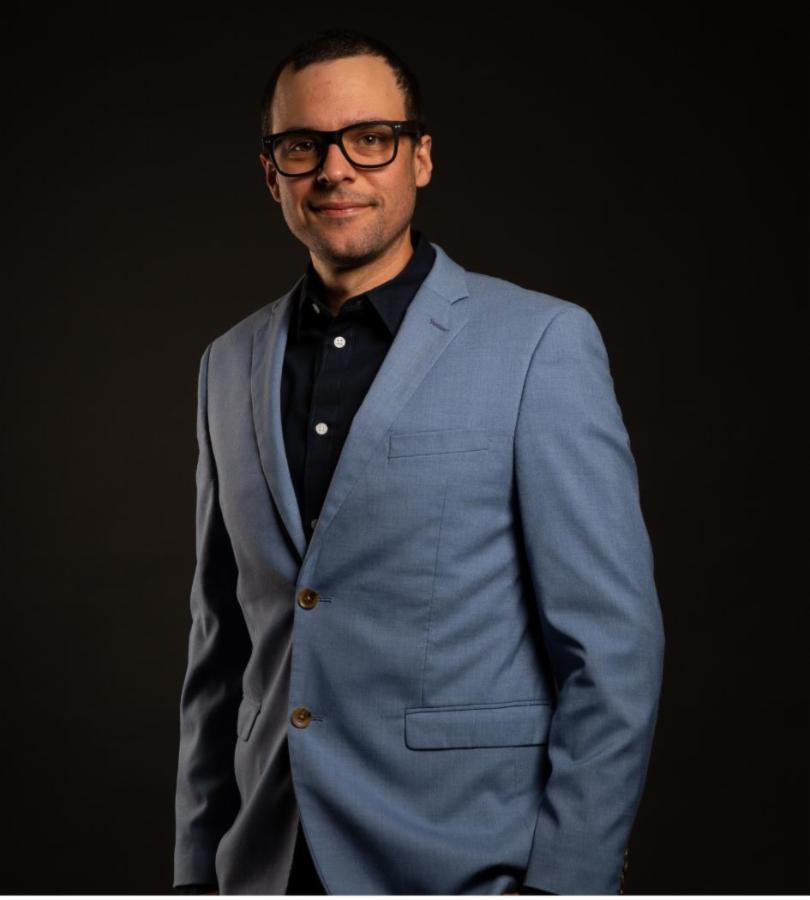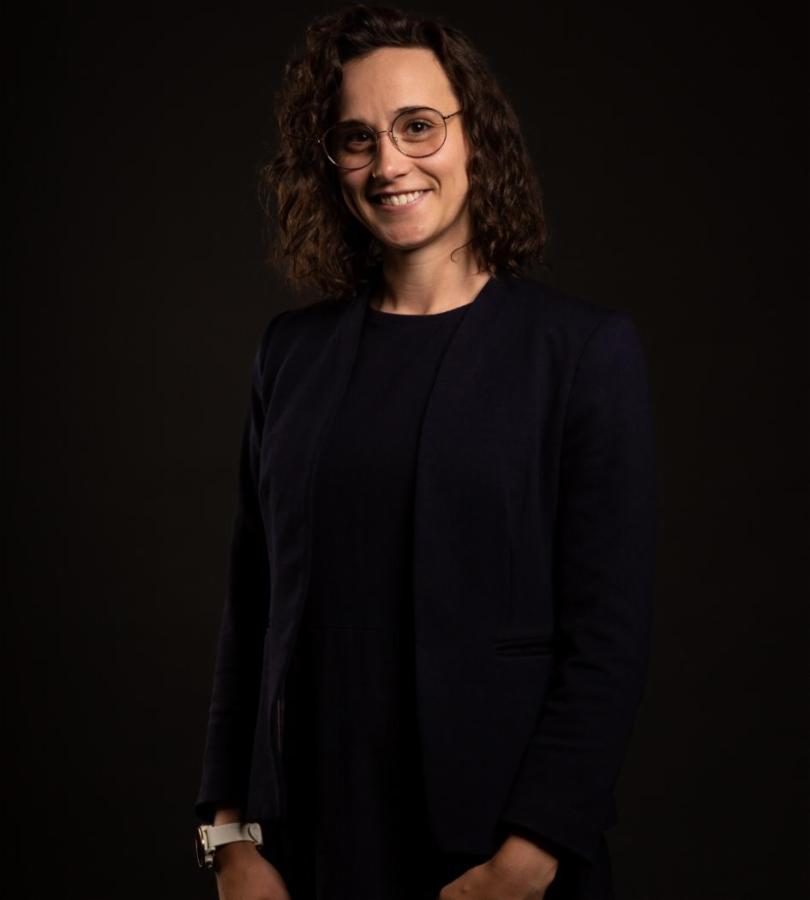𝐓𝐡𝐞 𝐒𝐮𝐬𝐭𝐚𝐢𝐧𝐚𝐛𝐥𝐞 𝐄𝐧𝐞𝐫𝐠𝐲 𝐑𝐞𝐬𝐞𝐚𝐫𝐜𝐡 𝐆𝐫𝐨𝐮𝐩 (SERG) is dedicated to develop energy models for sustainable energy transitions. The team includes about 20 researchers focusing on:
- Renewable Energy Integration: Optimizing the management of renewable energy systems to ensure efficient and reliable operation.
- Power-to-X Systems: Modeling for the production and integration of green hydrogen and other multi-energy/future fuel solutions.
- Energy Transitions Modeling: Creating comprehensive models to simulate pathways for transitioning to low-carbon energy systems.
- System Resilience: Analyzing and improving the resilience of energy systems against disruptions from hazards and uncertainties.
- Solar Engineering: Advancing the design and implementation of solar energy technologies.
- Energy Storage: Innovating the integration of advanced storage solutions.
- Carbon-Negative Systems: Exploring technologies for net-negative carbon emissions, including carbon capture and storage.
Looking for a HORIZON Europe partner or doing a PhD with us? Get in touch!
We also offer consultancies on:
- Lifecycle assessment of products and prospective energy technologies (e.g. with Simapro)
- Capacity expansion planning (e.g. with REMix-NZ and PyPSA-NZ)
- Urban energy system analysis (e.g. with FlexiGIS-NZ)
- Internationa energy policies and strategies advice
Our team
Leads: Rebecca Peer and Jannik Haas
Associate academics:
- David Dempsey, Carbon Systems, A/Professor, Department of Civil and Natural Resources Engineering, UC
- Grant Read, Power Economics, Adjunct Professor, Electrical Engineering, UC
- Allan Scott, Green Cement, A/Professor, Department of Civil and Natural Resources Engineering, UC
Researchers:
- Vikash Singh (Postdoctoral researcher): biomass for low-carbon cement
- Karan Titus (Research associate): carbon-negative geothermal energy
- Baxter Williams (Research associate): residential energy demand
- Francisco Astorga (PhD researcher): social and environmental impacts of energy futures
- Rafaella Canessa (PhD researcher): energy transitions for New Zealand including green hydrogen applications
- Akash Handique (PhD researcher): energy transitions for the Pacific Islands
- Stella Steidl (PhD researcher): urban energy hubs with green hydrogen
- Hadi Vatankhah (PhD researcher): sustainable energy hubs
- Madison Zegeer (PhD researcher): robust decision-making for energy futures
- Vicente Sepulveda (PhD researcher): long-term storage with hydrogen
- Meisy Fortunatus (PhD researcher): resilience of future energy systems
- Catalina Klausen (PhD researcher): optimization of CO2 capture and storage systems
- Haolong Pang (PhD researcher): multi-service battery modelling
- Rodrigo Zamorano (PhD researcher): carbon storage modelling in aquifers
- Francisco Flores (international PhD researcher from Uni. Catolica Valparaiso): energy transitions for South America including international trade
- Patrick Martin (international PhD researcher from Uni. Stuttgart): smart water-energy systems
Collaborating academics:
- Fabian Dunker, Inverse Problems, Mathematics and Statistics, UC
- Mehdi Ekbatani, Transportation Systems, Department of Civil and Natural Resources Engineering, UC
- Markus Pahlow, Water Systems, Department of Civil and Natural Resources Engineering, UC
- Alaa Alhamwi, Energy Systems Analysis, German Aerospace Centre, Germany
- Alice Bennet, Environment and Sustainable Development Engineering, University of Cambridge
- Christian Breyer, Solar Economy, Lappeenranta-Lahti University of Technology LUT, Finland
- Andre Cabrera, Environment and Sustainable Development Engineering, University of Cambridge
- Felipe Feijoo, Electrical Power Systems, Pontifical Catholic University of Valparaíso, Chile
- Hans Christian Gils, Energy Systems Analysis, German Aerospace Centre, Germany
- Pierluigi Mancarella, Chair Of Electrical Power Systems, University of Melbourne, Australia
- Wided Medjroubi, Energy Systems Analysis, German Aerospace Centre, Germany
- Rodrigo Moreno, Institute of Complex Engineering Systems, University of Chile, Chile
- Wolfgang Nowak, Stochastic Simulation and Safety Research for Hydrosystems, University of Stuttgart, Germany
- Rodrigo Palma, Energy Center, University of Chile, Chile
- Matias Paredes, Energy Ministry of Chile
- Ana Pueyo, NZ Ministry of Foreign Affairs
- Rachel Wagner, Saint Francis University, U.S.
- Manuel Wetzel, Energy Systems Analysis, German Aerospace Centre, Germany
Visiting researchers (sorted by date):
- Theresa Heinrich (incoming visiting researcher from Fraunhofer FIT, Germany): CO2 certificates for the hydrogen supply chain.
- Michael Schaffler (incoming visiting professor from Otto-von-Guericke-University Magdeburg, Germany): recycling of sustainable technologies.
- Sven Teske (visiting professor from the University of Technology Sydney, Australia): future energy vectors.
- Pierluigi Mancarella (visiting professor from the University of Melbourne, 2025): future power systems.
- Rodrigo Palma (visiting professor from the University of Chile, 2025): solar energy systems.
- Alice Bennett (visiting researcher from Cambridge, 2025): hydrogen technologies modelling.
- Andre Cabrera (visiting professor from Cambridge, 2025): energy systems.
- Alicia Pilsl, Michael Kasenbacher, Simon Stuber (visiting interns from the University of Regensburg, Germany, 2024): energy futures.
- Juan Carlos Osorio-Aravena (visiting senior researcher from the Solar Energy Research Center, Chile, 2024): future energy sector demands for New Zealand.
- Leon Schumm (visiting researcher from the University of Regensburg, Germany, 2024): PyPSA for New Zealand
- Ali Torkayesh (visiting researcher from the RWTH Aachen University, Germany, 2024): social preferences on future energy systems
- Manuel Wetzel (visiting researcher from the German Aerospace Centre, Germany, 2024): hydrogen infrastructure planning for NZ and Germany
- Patrick Martin (visiting researcher from the University of Stuttgart, Germany, 2024): smart water-energy systems
- Neven Duić (visiting professor from the University of Zagreb): how to build 100% RES energy systems
- Melissa Ale (visiting researcher from the University of Chile, Chile, 2023): resilient planning for NZ's energy system
- Ashish Gulagi (visiting senior researcher from the Lappeenranta-Lahti University of Technology LUT, Finland, 2023): multi-sector planning for NZ
- Will McNeil (visiting researcher from University of California Berkeley, U.S., 2023): sustainable heavy-truck transport
- Rachel Wagner (visiting professor from Saint Francis University, U.S., 2023): co-impacts of energy transitions
- Christina Benighaus (visiting senior researcher from the Karlsruhe Institute of Technology, Germany, 2023): social risk communications of energy transitions
- Carlos Alvear (visiting researcher from the University of Chile, Chile, 2022): strategic hydrogen reserves for NZ and Chile
Our projects (selected)
- 2025-2029 Derisking Carbon Dioxide Removal at Megatonne Scale in Aotearoa. Dempsey D, Peer R, Haas J et al. NZ MBIE Endeavour.
- 2024-2027 Comprehensive zero-carbon strategy for South America: Advancing energy equity and green hydrogen. Haas J, Peer R. UC’s SDG projects.
- 2022-2025 New Zealand-German platform for green hydrogen integration (HINT). Haas J, Peer R et al. German BMBF and NZ MBIE.
- 2022-2025 Methods for the coordinated optimization of water supply systems with evolving energy systems under deep climatic uncertainty. Nowak W, Haas J [international collaboration with the University of Stuttgart]. German DFG.
- 2022-2027 Pūhiko Nukutū: a green hydrogen geostorage battery in Taranaki. Nicol A, Dempsey D, Adams M et al. (with Peer R). MBIE Endeavour.
- 2022-2025 Enhancing risk assessment by understanding cascading failures. Logan T, Peer R, Zorn C. Te Hiranga Rū QuakeCoRE.
- 2022-2025 Pathways to net-zero carbon buildings and communities. Bellamy L, Peer R, McNabb S. BRANZ.



